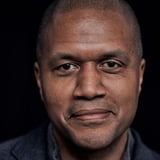Log in or create a free Rosenverse account to watch this video.
Log in Create free account100s of community videos are available to free members. Conference talks are generally available to Gold members.
Summary
How we design and deliver products is changing; how research plays is following suit. Our environment is complex, and evolving. AI’s role in design, product, research, and engineering is accelerating. New practices are shifting the boundaries between our functions. Strategic research programs play outside of functional lines, working with the fabric product development and the needs of different teams and situations. We shift our focus from tuning and scaling the research machine, towards tending the garden of shared understanding and possibility. In this session, we’ll explore paths for research practitioners and programs who want to operate effectively in uncertainty. We’ll discuss how complexity informs research strategy, and look at activity in the organization through lenses that create new opportunities for the research practice.
Key Insights
-
•
Most product organizations operate within complex adaptive systems, not predictable or purely complicated environments.
-
•
Traditional research projects that produce isolated insights often fail to impact product outcomes effectively.
-
•
Managing emergence—the unpredictable unfolding of outcomes—should be a core research focus rather than just delivering findings.
-
•
Dave Snowden’s Cynefin framework helps distinguish domains: clear, complicated, complex, and chaotic, with complexity being the key challenge for product teams.
-
•
Using vineyard management as a metaphor highlights that contextual factors drastically affect outcomes, meaning research approaches must be tailored per team context.
-
•
Direct actions or recommendations in complex systems rarely achieve desired outcomes without managing interactions and relationships.
-
•
Research democratization is promising but needs nuanced, context-specific approaches rather than one-size-fits-all solutions.
-
•
Tools like AIMS (Acting, Interactions, Monitors, Scaffolding) provide ways to intervene thoughtfully in complex adaptive systems.
-
•
Continuous agile cycles can be limiting for research; longer, consultative, and milestone-based approaches may be required to handle complexity.
-
•
Building trust and relationships, especially for remote researchers, is crucial to gaining access and influence within complex teams.
Notable Quotes
"Research alone is insufficient to solve complex organizational problems; it’s more about learning how to work with the teams and complexity."
"Helping teams is much more like managing a children’s party than engineering a bridge."
"If you want to grow good grapes, you need to manage the vineyard well—but every vineyard has different demands due to its context."
"Direct action rarely gets what we want in complex systems; instead, we must know what we can actually manage."
"Introducing insights into a system is just adding a new actor; without managing interactions, nothing changes."
"Democratization of research is interesting but not a one-size-fits-all; it needs quick assessment of what a team truly needs."
"Monitoring for weak signals and early signs of emergence is as important as intervention itself."
"Putting scaffolding in place helps self-organization in complexity—like training wires in vineyards or using shared maps in teams."
"Most research methods come from an engineering mindset suitable for complicated problems, but product problems are mostly complex."
"Working with complexity requires maintaining ambiguity as long as possible before converging on action."
Or choose a question:
















More Videos

"If you think fossil fuel companies are going to help us solve this, then we probably have a very different idea of how this system works."
Max Gadney Andrea Petrucci Joshua Stehr Hannah WickesAssessing UX jobs for impact in climate
August 14, 2024

"If you make a pretty page, that’s great. But if the users can’t actually use the page or they’re frustrated, you just have a pretty page."
Renee ReidBecoming a ResearchH.E.R (Highly Enterprise Ready)
June 3, 2019

"The official conference time zone is Pacific Daylight Time, but you can adjust it based on where you are."
Bria AlexanderOpening Remarks
March 28, 2023

"If your best customers say they want to engage through design thinking, that’s where you get the most traction."
Sam YenDriving Organizational Change Through Design? Do more of this and less of that
June 9, 2017

"Skill boot camps don’t create a movement; they’re tactical and don’t provide a cohesive set of ideas."
Uday Gajendar Adam RichardsonFrom AI to Zeitgeist: Theory as the design antidote to AI hype
March 27, 2025

"At IBM, projects felt like following a recipe, but at Compass, I can promote my ideas and see how they work, which is very satisfying."
Caitlyn Hampton Monica Lee Jina YoonCompass 101: Growing Your Career In A Startup World
June 11, 2021

"I didn’t say conference because this is really a highly polished snapshot of a conversation this community is having."
Louis Rosenfeld Bria AlexanderOpening Remarks
November 16, 2022

"I am in the land of the traditional territory of many diverse indigenous nations."
Sarah BrooksTheme 3 Intro
December 10, 2021

"In large organizations, soft skills are the hard skills—it's all about how you connect with humans and express your core values."
Catherine DubutBridging Physical and Digital Spaces: Approaches to Retail Service Design
March 18, 2021
















